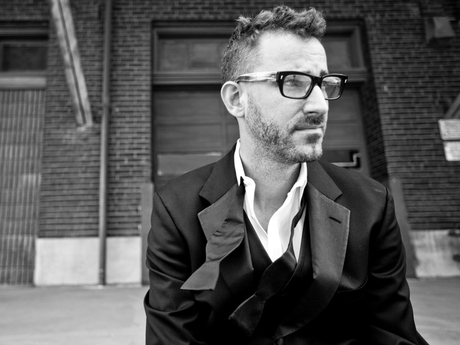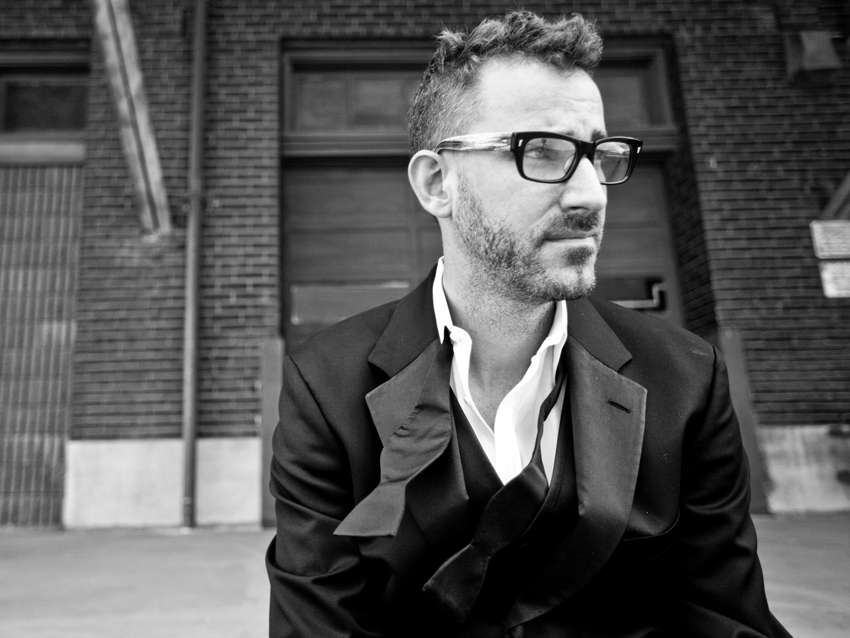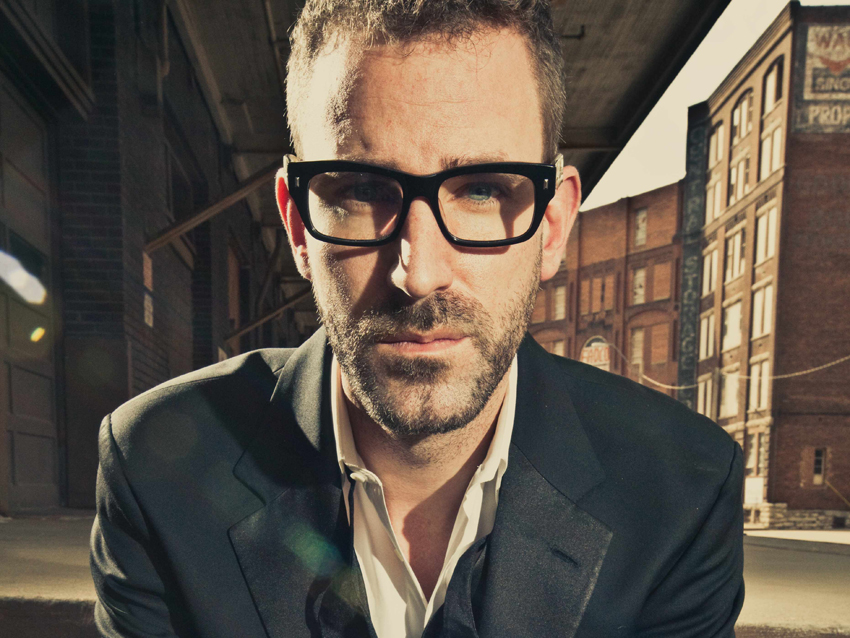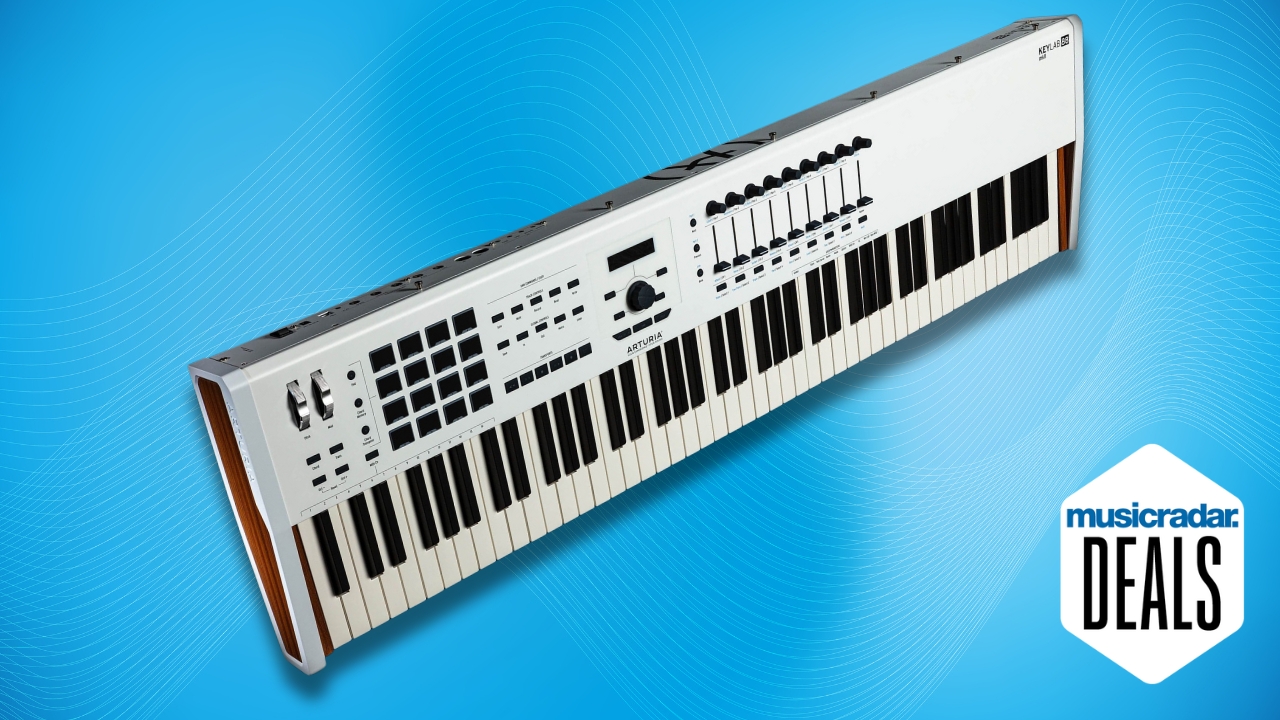

Having collaborated on nine songs for Lady Gaga's Born This Way, including the title track, you'd think that DJ White Shadow would be spending his summer globe-trotting to various and sundry A-list parties and events.
Think again. The 34-year-old Chicago-based producer and electronic music artist, who grew up on KISS and country music in the farming communities of Warren and Utica, Michigan, before his family relocated to Detroit, is bringing his live act to mainstream audiences as part of the month-long iDentity Festival, which started last week (11 August) in Noblesville, Indiana and runs through 10 September in George, Washington.
"America is the birthplace of electronic dance music," says White Shadow (real name Paul Blair). "Techno and house are heartland music, straight out of Detroit and Chicago. I'm excited to be traveling all over the country, playing the music I love and was raised on."
Recently, White Shadow dropped a five-song EP entitled I'm Killing Me, which can be downloaded for free on his website. More aggressive and harder than the pop music he created with Lady Gaga, it's a good indication of what we can expect from the full-length album he's planning to release in early 2012.
MusicRadar caught up with DJWS the other day after he played a rousing set at Lollapalooza in Chicago. We talked about how he got his start, what it's like to work with Lady Gaga and what gear he simply can't live without.
You grew up on farms in the Midwest but moved to Japan and started DJing. What's the story there?
"I went to school in Japan and lived there for a year. I applied for a special program to learn the language. I started DJing at a much younger age, but living in Japan was just the first time I got paid for it."
Get the MusicRadar Newsletter
Want all the hottest music and gear news, reviews, deals, features and more, direct to your inbox? Sign up here.
When you came back to Detroit, what kind of sensibilities did you bring you with? Also, how did your native music scene strike you upon your return?
"I had been going out in Detroit for three years before I left to go to Japan. I was only gone for a year, so not a ton had changed. Well, to me at least."
Did you start out on traditional instruments, or were you always more into the DJ/tech side of things?
"I started playing the trumpet first. Then I was busy skateboarding for a while. It wasn't until I heard some of the amazing DJs in Detroit that I decided that I wanted to try it."
How exactly did you get your start DJing?
"Professionally, my first real start was walking up to a guy in Japan at his bar and asking him to if I could DJ. He said yeah, but he could only pay me in beer. I was cool with that. Then I went back to school and got a bunch of different starts."
What do you think distinguishes you from other DJs? Artistically, what do you try to do differently from others in your field?
"I actually don't know. I try to rage. And every once in a while, I spontaneously play crunk hip-hop. I love music, and I love DJing - those are the sentiments I try to convey."
You've worked many high-profile events. At these functions, do you get to do your own thing, or do you sometimes have to tailor your presentation to the specific situation?
"It's always my own thing. Well, occasionally, I will get a challenge that I choose to accept. Marc Jacobs asked me to do a party for him during which I would only play country, blues and jazz. I told him I would do it. It was cool to look for and play music I would never play otherwise."
Lady Gaga contacted you and said she wanted to work with you because of a mix tape you made. What was on the tape? What about it impressed her so much?
"It was a tape of electronic music. It had some remixes on it that I had done. I think it was just some underground stuff. Actually, if the tape impressed her, then she was probably doubly impressed by the amazing and handsome guy who made it. I'm kidding, obviously."
Obviously. You collaborated with Lady Gaga and her production team on nine songs. What's involved in such a process?
"I'm a producer. Sometimes I make a beat and LG makes a song. Sometime she comes up with an idea and I make a beat. It's always collaborative. Sometimes she comes with almost finished songs. She writes everything and stays very close up until the song is flying out to get mastered."

With so many people involved in the songwriting, did it ever seem as though there were too many cooks in the kitchen?
"No, not at all."
In a recent interview, you took offense to Born This Way being compared to Madonna's Express Yourself, because you said you were never into Madonna. Still, the songs are similar...
"What I was saying is that the song is not a tribute or a rip-off or whatever. The similarities between the two songs are so small that I thought it was ridiculous to see that people were making such a big deal out of it, especially when the song Express Yourself is an exact rip of Respect Yourself by The Staple Sisters; and even more so because I thought Born This Way was too important of a song to have some silly controversy attached to it."
In putting together your EP I'm Killing Me, what was the process for writing and recording?
"I make stuff every day. At least one song a day. Some songs are finished, some are not. But I just went back through and picked out some things that I liked and then finished them. I have a ton more to go."
The songs have big, dramatic recurring hooks, as well as some amazing soundscapes and textures. How do you come up with your melodies?
"I don't know…nothing special. I usually just punch on the keyboard till I find a melody I like, and then I start making sounds to fit."
Was the intention always to be an artist in your own right? Ideally, how do you see your career unfolding?
"I've been a DJ and a producer for 15 years. I'm just glad someone finally noticed. I am going to keep doing what I have been doing since the beginning."
What's in your home studio setup? What do you consider to be essential gear and plug-ins?
"I'm currently redoing a couple things, but I have to have good, loud monitors. I have a Mac Pro and Abelton. I love Sylenth and Massive and all the Isotope stuff."
What are your thoughts on digital DJing vs vinyl?
"I like all technology. I do like vinyl, but when it comes to creativity, I think you can be a much better DJ if you try and stay ahead of the curve."
In your opinion, what makes a great remix?
"I like remixes that take part of the original spirit of the song but don't sound like the song. In every remix that I do, I try and take the energy from the original song and push it as far as I possibly can. I want it to be like a bomb exploding in your face."
What are your tips for making a killer pop record?
"Make music you like. Don't make music you think other people are going to like. Then…find somebody to like it."
Joe is a freelance journalist who has, over the past few decades, interviewed hundreds of guitarists for Guitar World, Guitar Player, MusicRadar and Classic Rock. He is also a former editor of Guitar World, contributing writer for Guitar Aficionado and VP of A&R for Island Records. He’s an enthusiastic guitarist, but he’s nowhere near the likes of the people he interviews. Surprisingly, his skills are more suited to the drums. If you need a drummer for your Beatles tribute band, look him up.
“I’m looking forward to breaking it in on stage”: Mustard will be headlining at Coachella tonight with a very exclusive Native Instruments Maschine MK3, and there’s custom yellow Kontrol S49 MIDI keyboard, too
“Turns out they weigh more than I thought... #tornthisway”: Mark Ronson injures himself trying to move a stage monitor










